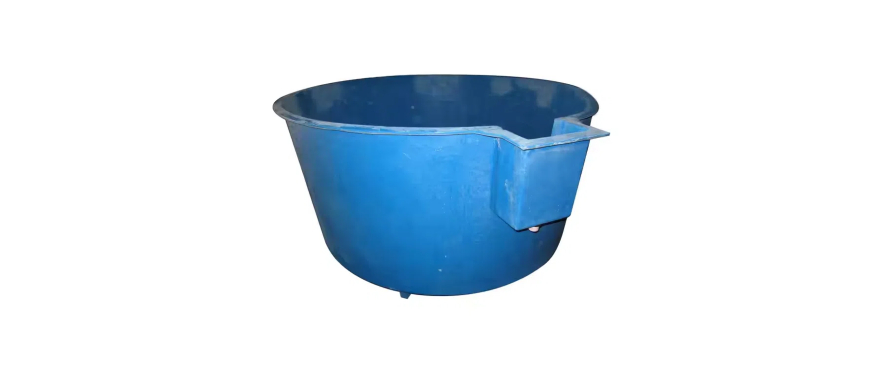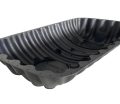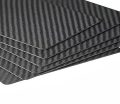
When considering the choice between aluminum vs fiberglass fish and ski boat, it’s crucial to evaluate the material’s performance in both fishing and water sports activities. Fish and ski boats need to excel in versatility, offering smooth handling for skiing while maintaining stability and durability for fishing. Aluminum vs fiberglass fish and ski boat options each offer distinct advantages. Aluminum boats are known for their lightweight nature, which provides easy handling and better fuel efficiency. However, they can be noisier and more prone to dents. On the other hand, fiberglass boats offer a smoother ride and greater durability but tend to be heavier and more expensive. This comparison helps you determine the best option for your needs, whether you prioritize cost, performance, or long-term durability in your fish and ski boat.
Aluminum vs Fiberglass Fish and Ski Boat: Choosing the Ideal Option
When deciding between aluminum vs fiberglass fish and ski boat, several factors come into play, including durability, performance, maintenance, and cost. Both materials offer unique benefits that cater to specific preferences and boating activities. This detailed exploration will help you weigh the pros and cons of each option and select the one that suits your needs best.
Pros and Cons of Aluminum vs Fiberglass Fish and Ski Boat
Advantages of Aluminum Fish and Ski Boats
Aluminum fish and ski boats are known for their practicality and versatility in a variety of water conditions.
- Lightweight and Easy to Transport
The lightweight construction of aluminum boats makes them easy to tow, launch, and maneuver. This feature is especially beneficial for users who frequently travel to different locations. - Durable in Rugged Conditions
Aluminum’s impact-resistant properties make these boats ideal for rivers, lakes, and areas with rocky or shallow waters. They can handle bumps and scrapes without compromising performance. - Affordable Pricing
Aluminum boats are generally more budget-friendly upfront and require lower maintenance costs, making them a great choice for buyers seeking value. - Simple Repairs
Minor dents and scratches can often be repaired with basic tools, reducing downtime and repair expenses. - Corrosion Resistance in Freshwater
Aluminum is naturally resistant to corrosion in freshwater environments, ensuring longevity with minimal care.
Disadvantages of Aluminum Fish and Ski Boats
- Noisy Operation
The material tends to amplify noise and vibrations, which may be a disadvantage for those seeking a quieter ride. - Limited Aesthetic Appeal
Aluminum boats typically focus on function rather than style, which might not appeal to buyers prioritizing design. - Susceptible to Saltwater Corrosion
Without proper maintenance and protective coatings, aluminum can corrode in saltwater environments.
Advantages of Fiberglass Fish and Ski Boats
Fiberglass boats are renowned for their superior performance, sleek design, and stability in various water conditions.
- Smooth and Stable Ride
The heavier construction of fiberglass boats ensures a smooth ride, even in choppy waters. This stability is perfect for skiing, fishing, or recreational activities. - Quiet and Comfortable Experience
Fiberglass absorbs vibrations and reduces noise, creating a quieter and more enjoyable experience for passengers. - Advanced Customization Options
Fiberglass boats can be molded into intricate shapes and designs, offering more features such as built-in storage, live wells, and seating configurations. - Corrosion Resistance
Fiberglass is naturally resistant to rust and corrosion, making it an excellent choice for saltwater use. - Luxurious Aesthetics
The polished finish and modern designs of fiberglass boats make them visually appealing to buyers who value style and sophistication.
Disadvantages of Fiberglass Fish and Ski Boats
- Higher Initial Cost
The upfront price of fiberglass boats is typically higher due to their manufacturing complexity and premium features. - Heavy Weight
The added weight of fiberglass boats can make them harder to transport and less suitable for shallow waters. - Complex Repairs
Damage to fiberglass, such as cracks or chips, often requires professional repair, which can be costly and time-consuming.
Key Insights from Aluminum vs Fiberglass Fish and Ski Boat
Online boating communities provide valuable insights into real-world experiences with aluminum vs fiberglass fish and ski boats.
- Durability
Many users on Reddit highlight the durability of aluminum boats, especially in rugged environments. Their ability to withstand impacts without major damage makes them a popular choice for fishing in rocky waters. - Comfort and Design
Fiberglass boats are often praised for their comfort and sleek design, with users noting their quiet operation and advanced features. These qualities make fiberglass boats particularly appealing for family outings and recreational activities. - Maintenance Tips
Discussions frequently emphasize the importance of regular maintenance for both materials. Aluminum boat owners recommend rinsing with freshwater after saltwater use, while fiberglass owners stress the need for polishing and gel coat repairs. - Fishing vs Skiing Preferences
Users often point out that aluminum boats are better suited for fishing due to their ruggedness, while fiberglass boats excel in skiing and recreational use because of their smooth ride and stability.
Aluminum vs Fiberglass Fish and Ski Boat in Competitive Settings
Aluminum Boats for Fishing
Aluminum boats are a favorite among anglers who fish in freshwater lakes or rivers. Their lightweight and durable design allows them to navigate shallow waters and withstand occasional bumps. They are also a practical choice for those fishing in areas with submerged obstacles.
Fiberglass Boats for Skiing
Fiberglass boats shine in skiing activities due to their stability and ability to cut through waves smoothly. The heavier build enhances traction and speed, making them perfect for pulling skiers or wakeboarders.
Fiberglass vs Aluminum Strength in Real-Life Scenarios
The strength of fiberglass vs aluminum varies depending on the type of stress applied.
- Impact Resistance
Aluminum boats excel in impact resistance, making them better suited for rugged environments where collisions with rocks or logs are common. - Crack Resistance
Fiberglass boats offer superior crack resistance in calm or open waters, ensuring long-term durability when maintained properly. - Longevity
Both materials can last for decades with proper care, but their longevity depends on the environment and maintenance practices.
Selecting the right aluminum vs fiberglass fish and ski boat comes down to your specific needs and preferences. Aluminum boats are ideal for rugged, shallow environments and budget-conscious buyers, while fiberglass boats offer unmatched comfort, style, and stability for recreational use. By considering the advantages and disadvantages outlined here, you can confidently choose the fish and ski boat that enhances your on-the-water experience.
Replacing the Old Aluminum Boat with Fiberglass Bow Cap
Aluminum vs Fiberglass Fish and Ski Boat: Making the Best Choice
The debate over aluminum vs fiberglass fish and ski boat is a crucial one for enthusiasts seeking versatility in both fishing and recreational skiing. Each material offers distinct advantages and challenges, and the right choice depends on your preferences, environment, and intended usage. Below is a comprehensive guide to the key considerations when choosing between aluminum and fiberglass fish and ski boats.
Aluminum vs Fiberglass Fish and Ski Boat Pros and Cons
Pros and Cons of Aluminum Fish and Ski Boats
Aluminum fish and ski boats are renowned for their practicality and ruggedness.
- Pros
Lightweight construction makes aluminum boats easier to tow, transport, and launch, especially for solo users.
Their durability is a standout feature, with the ability to withstand impacts from rocks or debris commonly encountered in shallow waters.
Aluminum boats are typically more affordable upfront and incur lower maintenance costs, making them a budget-friendly choice.
They resist freshwater corrosion exceptionally well and require only basic maintenance to remain functional.
Simple repair processes, such as addressing dents or scratches with basic tools, reduce downtime and expenses. - Cons
Noise can be an issue as aluminum amplifies vibrations, which might disrupt the tranquility of fishing trips.
While durable, aluminum boats can dent more easily than fiberglass and might not retain a polished look over time.
Their utilitarian design often lacks the sleek, aesthetic appeal that fiberglass boats offer.
Saltwater corrosion can occur if not properly maintained, requiring added care in coastal environments.
Pros and Cons of Fiberglass Fish and Ski Boats
Fiberglass fish and ski boats are known for their smooth ride and versatility in diverse water conditions.
- Pros
Their heavier construction ensures superior stability, especially in choppy waters, making them ideal for skiing and offshore fishing.
The smooth, quieter ride enhances comfort, an important factor for long outings or family trips.
Fiberglass boats boast sleek, customizable designs, allowing for advanced features like built-in storage and luxurious seating.
Naturally resistant to rust and corrosion, fiberglass boats perform well in saltwater conditions with proper care.
Their aesthetic appeal and modern features make them a preferred choice for users prioritizing style and functionality. - Cons
The higher initial cost of fiberglass boats can deter budget-conscious buyers.
Heavier weight can make transportation and launching more challenging compared to aluminum boats.
Cracks or chips in the fiberglass hull often require professional repair, which can be costly and time-consuming.
Maintenance demands are higher, with regular cleaning and polishing required to maintain their appearance and performance.
Aluminum vs Fiberglass Fish and Ski Boat for the Money
Budget-Friendly Aluminum Boats
Aluminum fish and ski boats are a more affordable option, both in terms of purchase price and ongoing expenses. Their lower maintenance requirements make them an economical choice for anglers and recreational boaters alike. The ease of repair and durability in rugged conditions ensures long-term cost savings, especially for users who frequently navigate shallow or rocky waters.
Investment-Worthy Fiberglass Boats
While fiberglass boats require a higher initial investment, their enhanced features and superior comfort often justify the cost. For those who prioritize aesthetics and long-term value, fiberglass boats offer better resale potential. With proper maintenance, they retain their performance and appearance over many years, making them a worthwhile option for dedicated enthusiasts.
Tips for Using Sandpaper Fiberglass Tub to Avoid Damage
Aluminum vs Fiberglass Fish and Ski Boat: Final Considerations
The decision between aluminum vs fiberglass fish and ski boat comes down to individual priorities. Aluminum boats are practical, durable, and cost-effective, making them perfect for rugged use. Fiberglass boats, with their superior stability, aesthetics, and comfort, are ideal for those who value luxury and performance. By carefully evaluating the advantages and limitations outlined here, you can choose the fish and ski boat that best aligns with your boating goals.
Aluminum vs Fiberglass Fish and Ski Boat in Saltwater
Aluminum Boats in Saltwater
Aluminum boats can perform well in saltwater environments with proper care. Regular rinsing after each use and applying anti-corrosion treatments help maintain their appearance and structural integrity. However, neglecting these steps can lead to surface corrosion over time.
Fiberglass Boats in Saltwater
Fiberglass boats naturally resist rust and corrosion, making them well-suited for saltwater use. Their smooth surface is less likely to degrade in brackish or coastal conditions. However, saltwater exposure can wear down the gel coat over time, necessitating regular maintenance and polishing to prevent long-term damage.
Aluminum vs Fiberglass Fishing Boat
Fishing with Aluminum Boats
Aluminum boats excel in fishing applications where ruggedness and versatility are key. Their lightweight design allows easy navigation in shallow waters and tight spaces, while their impact resistance ensures reliability in rocky conditions. They are a practical choice for freshwater anglers seeking durability without excessive maintenance.
Fishing with Fiberglass Boats
Fiberglass boats provide a stable and comfortable platform for offshore and deep-water fishing. Their ability to handle rough waters makes them an excellent choice for those venturing into open lakes or coastal areas. The quieter operation ensures minimal disruption, allowing anglers to approach fish stealthily.
Practical Considerations for Aluminum vs Fiberglass Fish and Ski Boat
Versatility and Usage
For users seeking a multipurpose boat that handles both fishing and skiing, the choice between aluminum and fiberglass depends on the primary environment. Aluminum boats are better for freshwater and rugged terrains, while fiberglass boats excel in open water and saltwater scenarios.
Maintenance Needs
Aluminum boats require less upkeep, making them ideal for casual users or those with limited time for maintenance. Fiberglass boats demand more care but reward users with enhanced aesthetics and performance.
Aesthetic Appeal
Fiberglass boats are unmatched in their visual appeal and modern designs. Aluminum boats focus more on functionality, which might not suit buyers looking for style and luxury.
Longevity
Both materials can last decades with proper care. Aluminum’s resistance to impacts ensures durability, while fiberglass boats retain their structural integrity and resale value when maintained regularly.
Top Features of Driveway Fiberglass Rod for Enhanced Durability
FAQs about Aluminum vs Fiberglass Fish And Ski Boat
When choosing the best material for a fishing boat, several factors need to be considered, including durability, weight, and resistance to the elements. Aluminum is a popular choice for fishing boats because of its durability and lightweight nature. It is particularly well-suited for fishing in shallow, rocky waters, as it is resistant to corrosion and easy to repair. Aluminum boats are also easier to handle, making them perfect for solo boaters or smaller craft.
Fiberglass boats are another excellent option, especially for offshore or long-distance fishing. They offer a smoother ride, better stability in rough waters, and can accommodate larger fishing setups. Fiberglass also offers more customization in terms of design, with many anglers choosing fiberglass boats for their aesthetic appeal and comfort. However, they are heavier and may require more maintenance over time. The best material depends on the type of fishing, water conditions, and maintenance preferences of the boater.
Aluminum boats are commonly used in Alaska due to their durability and resistance to the harsh conditions of the environment. In Alaska, boats are frequently used in shallow, rocky waters, which can easily damage fiberglass hulls. Aluminum, being a more impact-resistant material, is better suited for navigating these waters without significant risk of damage. Additionally, aluminum boats are more lightweight, which makes them easier to handle and transport in remote areas where access may be limited.
The cold temperatures in Alaska can also affect fiberglass, as extreme cold may cause the material to become brittle and prone to cracking. Aluminum boats, on the other hand, perform well in these conditions, offering more resilience in cold environments. The corrosion resistance of aluminum, especially in saltwater, is another reason why aluminum boats are preferred in Alaska, where boats often face exposure to both freshwater and saltwater environments.
While aluminum boats have many benefits, there are some downsides to consider. One of the main disadvantages is their noise level. Aluminum boats tend to be noisier than fiberglass boats, as the metal hull amplifies the sound of water slapping against the boat. This can be disruptive, especially when fishing or in environments where stealth is necessary.
Another downside is the susceptibility of aluminum boats to dents and dings. While aluminum is durable, it can be more prone to impact damage compared to fiberglass, especially in rocky or debris-filled waters. While these dents are often repairable, they can affect the boat’s performance and aesthetics.
Additionally, aluminum boats can be prone to heat retention. On hot days, aluminum boats can become very warm to the touch, especially in areas exposed to direct sunlight. Finally, while aluminum is resistant to corrosion, it still requires regular maintenance to ensure it remains in top condition, especially when exposed to saltwater or extreme environmental conditions.

As the editor of GangLong Fiberglass, I have years of experience and in-depth research, focusing on cable tray products, fiberglass solutions, and grille systems. I incorporate years of industry insights and practical experience into every content, committed to promoting the progress of the industry. At GangLong Fiberglass, my commitment is reflected in every product, from innovative cable trays to durable fiberglass solutions and sturdy grille systems. As an authoritative voice in the industry, my goal is to provide valuable information to professionals and businesses and promote forward-looking solutions.


